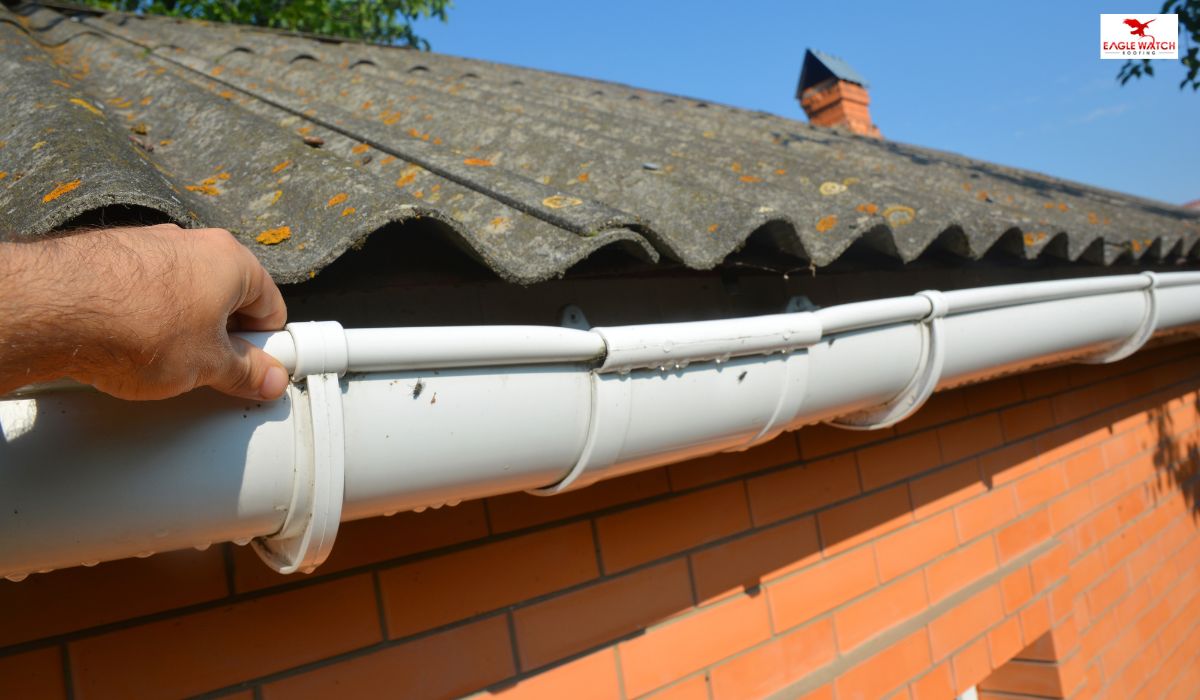Home Insurance and Gutter Repair: What Every Homeowner Should Know
As a homeowner, there is likely much that occupies your plate.
You’ve got lawn maintenance to take care of and repairs to be up on, and sometimes, it can seem too much.
One area you might be neglecting when it comes to your home is your gutters.
Though seemingly insignificant, your gutters are crucial in preventing significant issues from occurring over time—and perhaps even in the future affecting your home insurance.
Have you ever wondered how gutter issues impact your coverage?
Or what happens if those pesky leaks cause water damage in your home?
Understanding these nuances can save you time and money when disaster strikes.
In this guide, we are going to tackle everything you need to know about home insurance and gutter repair.
Whether you are dealing with pre-existing damage or looking to prevent further issues, these insights should be considered an essential read for every homeowner!
It’s more than just a safety net; home insurance is crucial for protecting your investment.
Most homeowners underestimate the importance of gutter repairs.
Gutters are such critical parts of your home where failure could lead to significant water damage in the walls and even the foundation of your home.
Having home insurance helps cover these unexpected costs.
It provides financial protection when repairs go beyond what you can handle out-of-pocket.
This makes understanding your policy essential for maintaining peace of mind.
Gutters are an external feature, but they are crucial for your home’s health.
If they get damaged because of storms or other incidents covered by your policy, you will find yourself eligible for coverage on those repairs.
Besides that, being aware of the specific events included gives one knowledge of making proper judgments of when to do the maintenance or upgrading.
Proactive approaches towards gutter care help save not only your property but the maximum benefits from the insurance for your house.
How Gutters Can Affect Your Home Insurance Policy
Gutter damage can have very huge implications on your home insurance policy.
When gutters fail, they may lead to water damage that affects your home’s interior and exterior.
Such damage often falls into a more significant category that is closely watched by insurers.
Typically, insurance companies rate claims according to the cause of gutter failure.
If they establish that the reason was neglect or lack of maintenance, then you might be faced with higher premiums or denial of coverage for future claims.
Moreover, frequent claims due to gutter issues can put your account at risk, and this might make insurers raise the rates or refuse to renew your policy.
This is for structural integrity, but equally important is guarding against the draining of your wallet through an insurance company.
Being proactive reduces risks and proves to a homeowner one is behaving responsibly.
Common Gutter Problems Covered by Home Insurance

Home insurance gutter repair often covers several common problems that can arise with time in gutters.
Damage usually occurs due to storms and other extreme weather conditions.
For instance, high winds may dislodge the gutters, causing leaks and amassing water around the foundations of your home.
Another common issue is rust or corrosion caused by prolonged exposure to water.
If your gutters are metal, this can create significant problems that may fall within the scope of what your policy covers.
Other causes of blockages and physical damage to the gutter system are falling debris from trees.
These include branches and leaves.
Most home insurance policies will cover repairs from such accidents.
Ice dams in colder climates can cause severe sagging or even detachment of gutters, which may fall under home insurance if it is adequately recorded before filing for a claim.
When Are Gutter Repairs Not Covered by Insurance?
Home insurance for gutter repair policies can be tricky when it comes to gutter repairs.
There are specific situations where your insurance may not cover the costs, leaving homeowners in a tough spot.
Poor maintenance is one common reason why your gutters might be denied.
If your gutters have been neglected and deterioration occurs, insurers might deny claims.
The other factor is natural wear and tear.
Insurance generally covers sudden events but will not pay for events that occur over time due to lack of proper maintenance.
Homeowners must remain vigilant regarding regular inspections.
Additionally, if your home suffers from flooding or water damage unrelated to storm events, your policy might not cover gutter repairs linked to these problems.
Always read the fine print of your policy before assuming coverage.
Intentional damage or neglect will almost certainly void any claims related to gutters.
Being proactive with maintenance helps avoid these pitfalls and protects you from unexpected issues that arise.
Preventive Measure: Maintaining Your Gutters
Maintenance is paramount to keeping your gutters in good condition.
Start cleaning them at least twice yearly; spring and fall would be ideal times.
The gutters must remove leaves, debris, and dirt that can clog them up.
A clean gutter system functions better and thus helps prevent costly damage.
Check your gutters for signs of wear or damage.
Look for cracks, rust spots, or sagging sections that might indicate a problem brewing behind the scenes.
Early detection can save you from more significant repairs down the line.
Consider installing gutter guards to minimize debris buildup.
These protective covers allow water through while keeping out leaves and twigs, reducing the frequency of necessary cleanings.
Make sure your downspouts are taking water away from your foundation.
This prevents pooling around your home’s base, which can lead to serious structural issues over time.
Simple adjustments make a big difference in keeping healthy gutters.
Steps to Take Before Filing a Home Insurance Claim for Gutter Damage
Start by documenting everything about gutter damage before filing the home insurance claim.
Take high-quality photos of the broken gutters from different angles; these images will be handy when presenting your claim.
Gather all relevant information for your policy: go through your coverage to understand what will be included in gutter repair.
Be familiar with deductibles and limits that may influence your claim payout.
After gathering documentation, assess the extent of the damage.
Determine whether immediate repairs are necessary or if you can wait for an adjuster’s adjuster.
Avoid making repairs before consulting with your insurer unless there’s further damage.
Contact your insurance company as soon as possible.
Be prepared to provide them with all gathered information and answer questions about the incident that led to the damage.
That helps ensure a smooth claims process.
Tips for Working with Insurance Companies for Gutter Repairs
This requires that an issue be communicated to the insurance company while doing gutter repairs.
Obtain all complete documentation to present your case, such as pictures showing damage and possible repair estimates.
When you call your insurance company, be clear and direct in describing the situation.
Tell them what happened, how it impacts your property, and why you think it falls within your policy.
Don’t be afraid to ask questions when you don’t understand something.
Keep a record of all correspondence, whether via e-mail, phone call, or letter and write down the names of representatives you talk with.
This can serve as a valuable record for you later on.
Be patient but persistent when following up on your claim status.
Insurance processes take time, but staying engaged indicates you’re serious about getting things done as soon as possible.
Gutter Repair Costs: What You Can Expect to Pay Out-of-Pocket
The gutter repair cost depends on various factors.
Generally, any basic repair for a gutter can range between $150 and $600.
This usually depends on the type of damage and materials used.
If your gutters are clogged or need minor adjustments, you might spend closer to the lower end of that spectrum.
However, extensive damage from rusting or sagging can push costs higher.Replacement sections or new installations will cost significantly more.
Labour is another factor that influences your total cost.
Hiring skilled professionals will ensure proper installation but includes additional costs.
It is well worth getting several quotes before you make a decision.
And remember maintenance costs too!
Regular inspections help prevent more significant issues down the road, which saves you money in the long run.
Investing in proactive care keeps your home safe while minimizing unexpected repair bills later.
Selecting a Gutter Repair Company: What to Look For
Choosing the right gutter repair company is essential if you need quality work.
A good start would be checking local, reputable contractors.
Look for those with good reviews online and whose testimonials speak of them as responsible and skilled contractors.
A good contractor also needs to have the correct licenses to operate and insurance covering liability against any damage that may occur during the repair process.
This secures your house even better.
Ask them about their experience, especially in gutter repairs.
If they know various kinds of gutters, it will be easier for them to deal with problems that may have different solutions.
Feel free to ask for examples of previous work or references.
Compare quotes from multiple contractors before deciding.
Besides getting a feel for how the market is pricing these services, comparing quotes will also allow you to gauge how well each contractor communicates and ascertains your needs.
Communication is key at every step throughout the gutter repair process.
How to Avoid Damages in the Future and Save on Insurance
Regular maintenance is the starting point for preventing gutter damage.
Schedule seasonal inspections to ensure they remain clear of debris, leaves, and dirt.
Clogged gutters can lead to water overflow, causing severe damage to your home’s foundation.
Consider installing gutter guards or screens.
They act as a barrier against larger debris while allowing rainwater to flow freely.
This small investment can significantly reduce the frequency of cleanings and protect your system from clogs.
Trim branches that are hanging over your roofline.
Those limbs will drop leaves into gutters or, worse yet, break off during storms.
Keeping them at bay will protect both your gutters and shingles.
Ensure proper downspout drainage away from your home’s foundation.
Water pooling around the base can lead to costly repairs later.
By taking these proactive steps, you not only protect your property but may also lower future insurance premiums related to gutter issues.
Conclusion
Home insurance gutter repair can be a good safety net for homeowners who face gutter repair costs.
Knowing the details of your policy is essential.
It helps you make informed decisions when damage occurs.
Regular maintenance and timely repairs not only protect the structure of your home but also help in retaining lower insurance premiums.
Keeping your gutters in good shape reduces the risk of significant issues.
Navigating claims with insurers may seem daunting, but being prepared makes it easier.
Knowing what’s covered, what’s not, and having documentation ready can streamline the process significantly.
Investing time upfront into gutter care pays off later.
This proactive approach benefits your home’s longevity and financial stability regarding insurance claims related to gutter damage.
FAQ’s
What are the types of gutter damage typically covered by home insurance?
Most policies will cover damages caused by storms or accidents. However, wear-and-tear issues usually are not covered.
Are there any specific conditions under which a claim for gutter repair might be denied?
Yes, if the damage is due to a lack of maintenance or neglect, your claim may not be honoured.
How do I know whether I need repairs or a complete replacement for my gutters?
A professional inspection is always best. They can assess the extent of the damage and recommend suitable action.
Will filing a claim increase my premium rates?
It might. Insurers often reevaluate risk after claims and may raise premiums based on that.
Should I get multiple quotes from different contractors for repairs?
Absolutely! Getting various estimates helps you understand fair pricing and ensures you choose someone reputable for the job.


